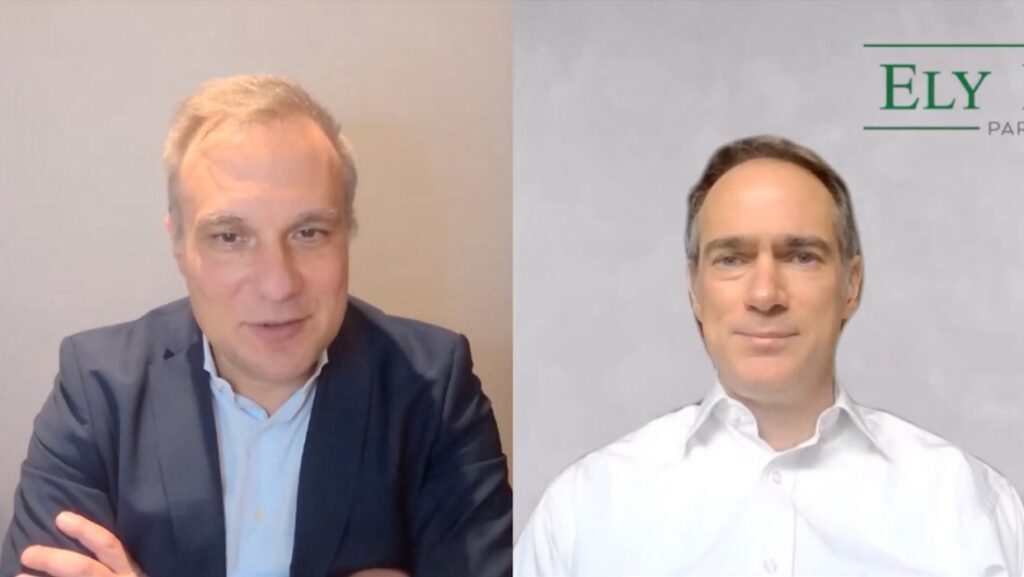Nakul Zaveri, Global Co Head of Climate Investment at Leapfrog, and Pulkit Khurana, founder of Battery Smart, on trends in the battery space
In a recent ION Influencers fireside chat, Nakul Zaveri, Partner and Co-Head of Climate Investment Strategy at LeapFrog Investments, and Pulkit Khurana, Co-Founder of Battery Smart, discussed emerging trends in the battery space and the broader implications for climate investment. Hosted by Giovanni Amodeo, this conversation delved into the strategic approaches and innovative solutions driving the transition to sustainable energy.
Backgrounds:
Nakul Zaveri: Partner at LeapFrog Investments, leading the climate investment strategy focused on low-carbon pathways for emerging markets.
Pulkit Khurana: Co-Founder of Battery Smart, India’s largest battery swapping network for electric two-wheelers and three-wheelers.
Key Topics Discussed:
Decarbonization and Investment Strategies:
- Nakul Zaveri emphasized the importance of decoupling economic growth from carbon emissions. LeapFrog Investments aims to provide sustainable services to emerging consumers, leveraging the “green leap” concept to bypass carbon-intensive development.
- Investment Metrics: LeapFrog evaluates investments based on affordability, relevance, quality, and the concept of “green discount” – where low-carbon solutions are cheaper than traditional alternatives.
Battery Smart’s Business Model:
- Pulkit Khurana highlighted the economic and practical motivations behind Battery Smart’s battery swapping model. The company aims to reduce the upfront cost of electric vehicles and eliminate downtime associated with charging.
- Market Penetration: Battery Smart serves over 100,000 battery swaps daily across 40 cities in India, addressing the needs of commercial users and promoting EV adoption.
Manufacturing Trends and Challenges:
- Pulkit Khurana discussed the fragmented nature of India’s EV manufacturing sector, with most components still being imported. He anticipates significant growth in domestic cell manufacturing in the coming years.
- Nakul Zaveri added that the transportation value chain’s growth is driven by manufacturing, charging infrastructure, and financing, with a focus on scaling up charging solutions.
Government Policies and Public-Private Collaboration:
- Both speakers acknowledged the role of government policies in enabling the EV transition. Incentives like production-linked incentives and demand subsidies are crucial for accelerating EV adoption.
- Public-Private Synergy: The collaboration between the public and private sectors is essential for achieving India’s ambitious EV targets and reducing reliance on fossil fuels.
Future Growth and Impact:
- Pulkit Khurana outlined Battery Smart’s growth milestones, including expanding to new cities and increasing battery capacity to serve more EV owners.
- Nakul Zaveri emphasized the modular nature of Battery Smart’s business model, which can be replicated in other emerging markets. He also highlighted the potential for second-life battery ecosystems.
Data Analytics and Competitive Edge:
- Pulkit Khurana stressed the importance of data analytics in optimizing Battery Smart’s operations and enhancing customer experience. The company’s extensive data on battery usage and customer behavior provides a significant competitive advantage.
Key timestamps:
00:09 Introduction to the Discussion
01:27 Decarbonization Trends in Capital Markets
03:37 Investment Metrics for Decarbonization
05:46 Battery Smart’s Founding Vision
08:09 Trends in Electric Vehicle Manufacturing
11:14 Government’s Role in EV Growth
12:22 Milestones in Battery Smart’s Growth
14:45 Future Growth and Expansion Plans
15:56 Protecting Competitive Advantage
17:45 The Role of Data in Business Strategy
20:30 Community Impact of Battery Smart
22:15 Public and Private Sector Collaboration
24:52 Investor Concerns and Co-Investment Trends
27:11 Challenges in Scaling Electric Mobility
28:16 Conclusion and Acknowledgments









